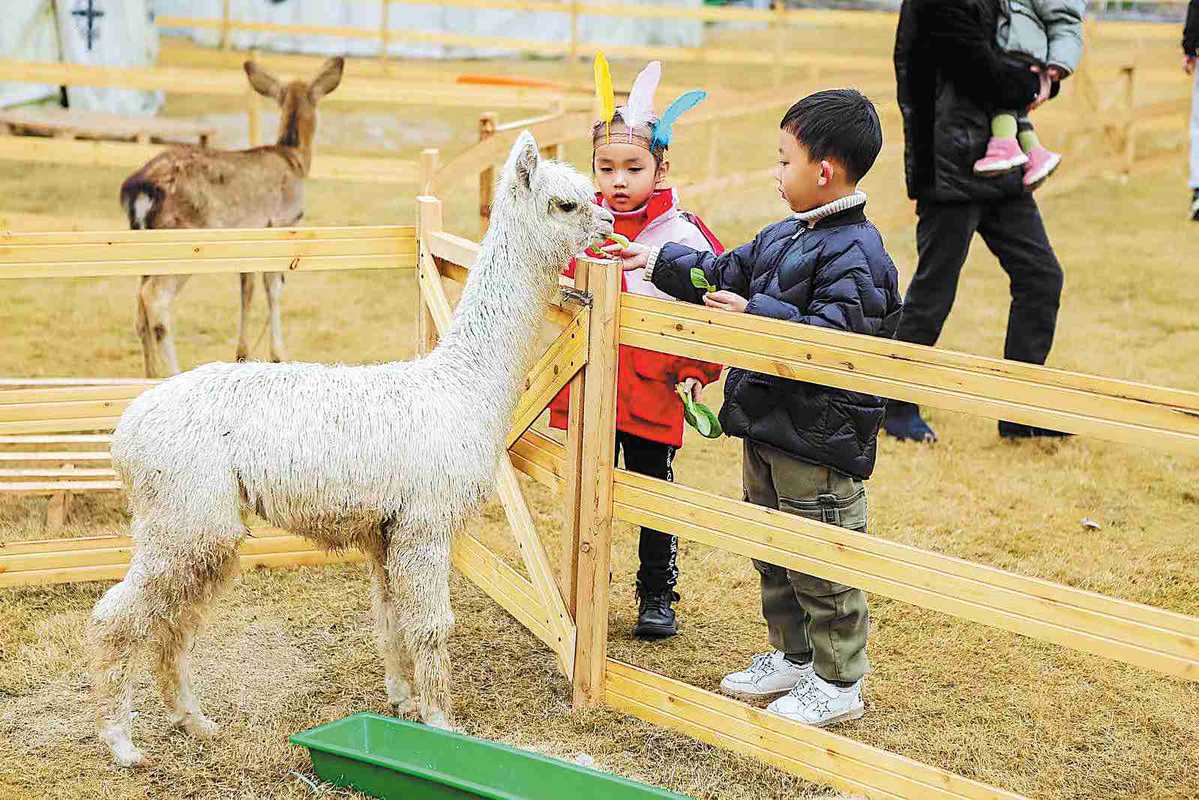Latest business models, technologies inject new life into village economies


Maximizing villages' resources through up-to-date business models and technologies is the best way to ensure long-term common prosperity, as envisioned by the central government, according to Ye Chenglong, founder of the startup company Yimadangxian.
That was one of the key ideas behind his startup, which Ye began in 2019, four months before his graduation from university. Ye initially designed his company as an e-commerce platform selling agricultural products.
But the company's business has partly moved offline into building shared farms in rural areas of Zhejiang province. Consumers can place tailor-made orders from the farms. The farms also lend themselves to activities that attract urban families looking for a place to spend a weekend or national holidays.
Ye's ideas were validated at the shared farm that Yimadangxian built in the Zhejiang village of Chengyang in late 2020. During the May Day holiday in 2021, the farm welcomed a record 6,000 visitors on May 3. Combined sales revenue at the restaurants, souvenir shops and local specialty stores in Chengyang topped 280,000 yuan ($44,044) on that day.
"Heartened by a vibrancy rarely seen before, some villagers who had not yet opened restaurants or homestay businesses set up booths at busy crossroads to sell homegrown vegetables or fruit. We have seen the power of building industrial chains in villages," said Yang Xiaochun, head of the Chengyang village committee.
The combination of online e-commerce services and offline activities is the best way to revitalize villages, as their resources can be fully exploited, in Ye's view. With insight gained by studying the cultural heritage and special industries in different villages, customized travel routes can be designed. Travelers are attracted by these routes and often place online orders for agricultural products when they return home, helping create a sustainable business model, he said.
Using the model, sales of agricultural products exceeded 1 million yuan in Chengyang by the end of 2021. More than 100 villagers have taken jobs at the shared farm since new businesses started last year.
Yu Zhenfei, a craftsman who produces goods made with bamboo strips, is a good example. Instead of simply selling his handcrafted bamboo products, his role changed after Yimadangxian's shared farm was set up in Chengyang. Yu became a craftsmanship tutor, teaching visitors the basic techniques of making goods with bamboo strips.




































